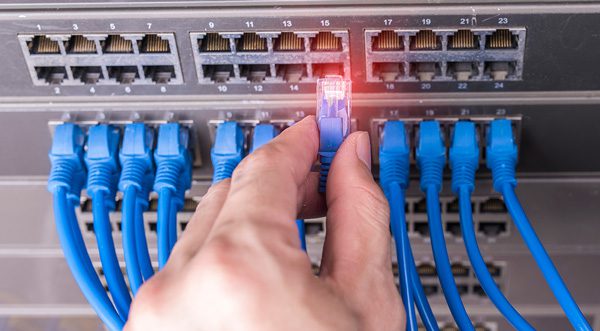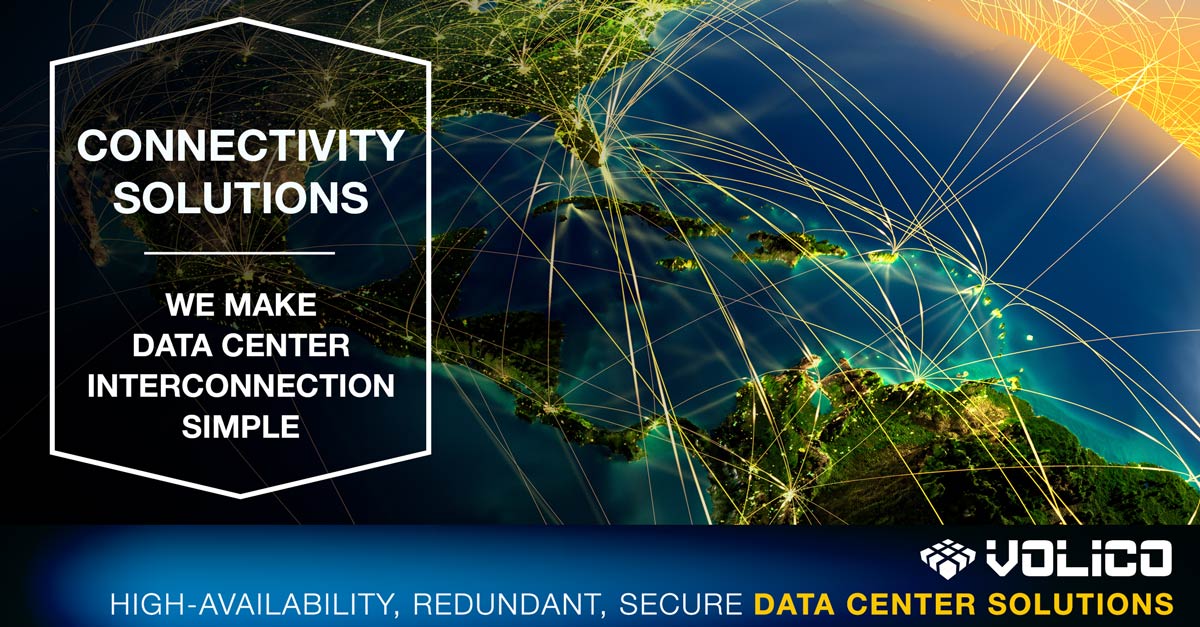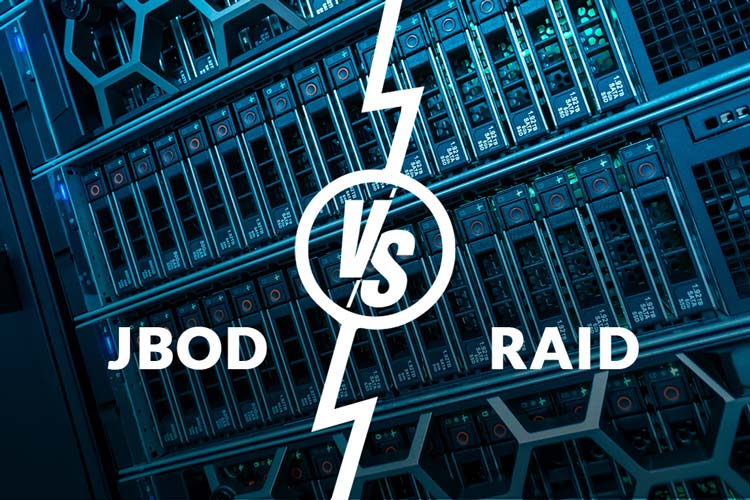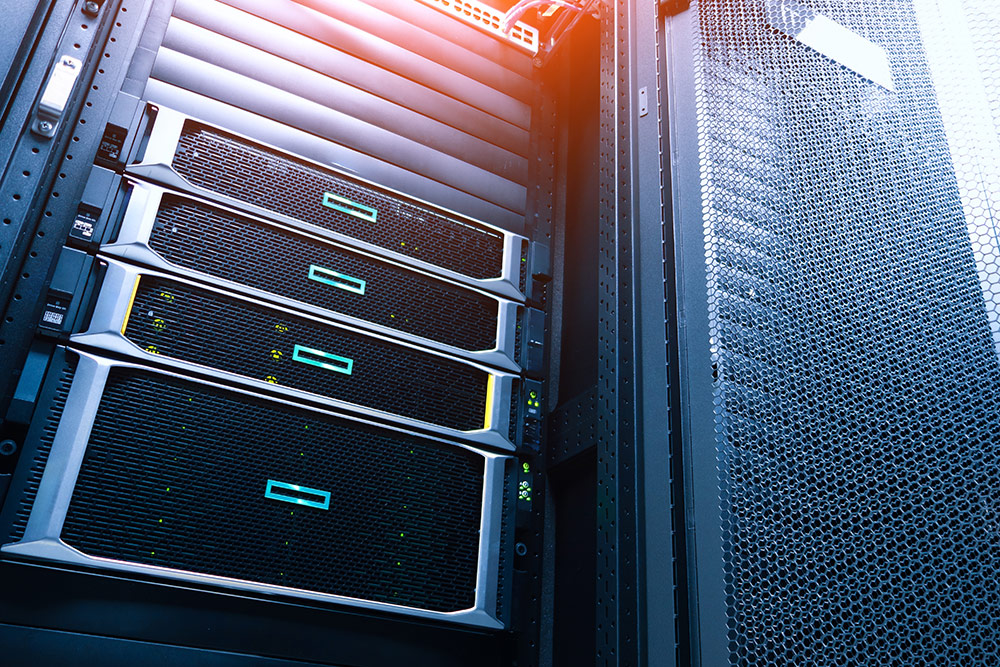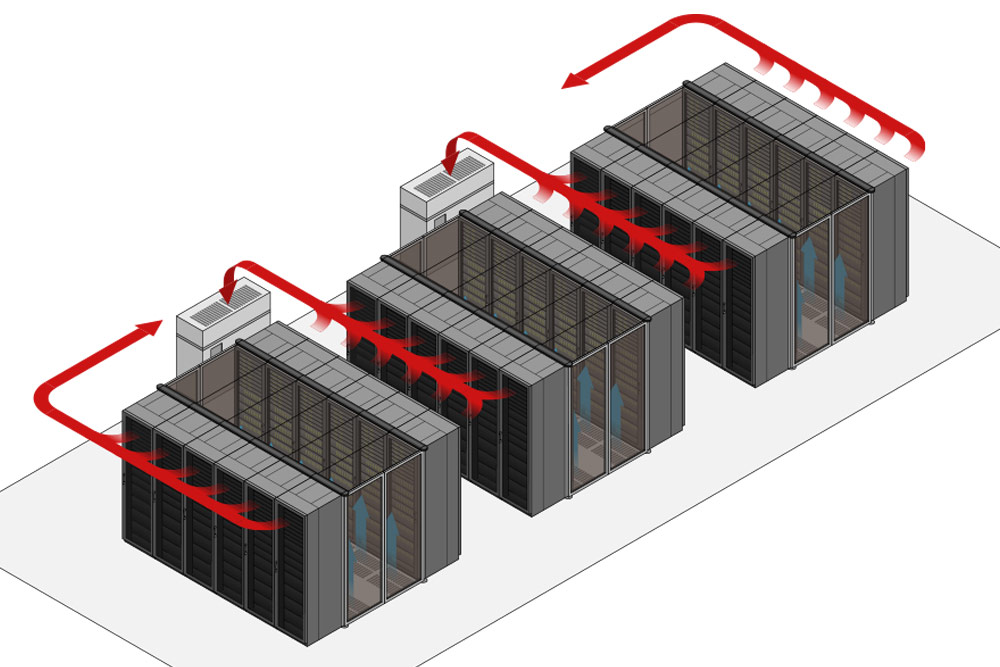Data center interconnection could be the missing link in your data center strategy. In fact, when looking for a data center, you’ll want to consider its interconnection capacity.
You see, an immense amount of data is being managed, distributed, and exchanged between businesses globally. In essence, this means that for business continuity, your IT infrastructure must be stable.
You’ll therefore want a colocation provider that can offer customized solutions to meet your business needs — and that’s where data center interconnection comes in.
Interconnections can be confusing and overwhelming. To help, this article emphasizes the most common, defines them, and offers real-world examples to help you choose a winning interconnection strategy, including different approaches to interconnection and the benefits of using a colocation provider to manage them.
What is Data Center Interconnection?
What do we mean by interconnection, and why does it matter? At its core, data center interconnection is the private data exchange between businesses.
Data center interconnection enables private data exchange between two or more parties to mutually exchange data at the fastest possible speed. For data center and telecommunication networks, interconnection is a physical link connecting either two or more data centers, a carrier’s network, and a data center, or a carrier/ISP and their customers. Interconnection is the ecosystem that holds these entities together.
More specifically, interconnection involves the physical and virtual connections between businesses and data centers. The idea is to facilitate swift and rapid data exchange.
Interconnection thrives in a carrier-neutral data center, where the distributed IT infrastructure of the businesses exchanging data is hosted.
Data center interconnection enables businesses to access multiple internet service providers (ISPs).
Access to several service providers further allows companies to cement their local and international presence. That way, they can increase their reach and streamline their business operations.
Hallmarks of a Data Center Interconnection
Let’s analyze a few crucial elements of a data center interconnection to help you to better understand the topic.
Digital Ecosystem Density
As the name suggests, interconnection involves connecting several parts simultaneously.
Data center interconnection links multiple discrete entities, enabling them to connect in digital ecosystems or as a unit with other single entities, ecosystems, or a collection of ecosystems.
Interconnection allows businesses to create value by linking to partners, customers, and employees worldwide or exchanging data.
Proximity
Because the connecting partners must be as close to each other as possible, interconnection helps minimize latency and, by extension, excellent user experience.
On top of that, closer connections — such as cross-connects — are relatively more affordable than long-haul networks.
Direct Connectivity
Direct connections that don’t require running over the public internet are another crucial element of interconnection.
The connections, be they direct, 1-to-1, private or 1-to connections, are fast, secure, and deliver optimal performance. That’s incredibly essential as businesses expand digital borders and risks.
Globally Distributed Exchange Point Deliverability
Data center interconnection allows businesses and digital players to assemble and create multiple connections.
In a world of the digital economy, interconnection must occur at globally dispersed exchange points such as the carrier-neutral colocation campuses Volico operates.
Types of Interconnections
There are several types of data center interconnection. These are:
Peering Exchange
Peering exchange involves connecting two networks that exchange traffic without relying on a 3rd party like an ISP or telecom provider to deliver the traffic across the internet.
The operator can adjust routing in peering exchange to eliminate bottlenecks and optimize performance.
This data interconnection ensures traffic remains location, helping bypass latency created by multiple internet hoops.
Cross Connect
In a cross-connect data center interconnection, a copper or fiber cable runs between the company’s servers.
A physical, hardwired cable is provided between two separate termination locations inside the colocation data center.
A cross-connect delivers high performance, top-notch reliability, dedicated connectivity, and reduced latency.
Volico’s carrier-neutral cross-connects interconnection allows you to partner with any carrier hosted in our facility or local data center without leaving a hole in your budget.
Further, our network interconnection is simple and offers reliable connectivity options built to support your network and business requirements.
Inter-site Connectivity
Inter-site connectivity offers communications between campuses in the colocation data center’s network.
Further, inter-site connectivity allows customers to access all the providers they require in an interconnection-dense data center. It also enables the customers to expand with limitations within campus facilities.
In addition, the customers have access to several carrier-grade transport options. On top of that, they get access to a common carrier to other local interconnection hubs designed for remote locations.
Blended IP
A blended IP data center interconnection allows customers to partner with a colocation provider working with several upstream ISPs and carriers.
Blended IP enables the creation of a highly reliable, SLA-backed solution running on fully redundant network architecture. That way, customers can enjoy optimal performance across providers.
When paired with a virtual service, blended IP offers a platform for customers to access multiple public cloud providers, enabling them to connect to distributed deployments across several markets.
Further, by leveraging blended IP connectivity, customers can create multi-region cloud architectures from a single port without a long-term commitment.
Volico’s blended IP leverages several backbone providers, allowing us to deliver reliable, high-bandwidth commercial internet. Our solution comes with a fully redundant network, enabling us to provide the uptime, reliability, and scalability your business requires.
Metro Connect
Metro Connect provides point-to-point connectivity between customers operating in the same metropolitan area. It allows businesses to connect to several deployments and access other ecosystems beyond your primary data center.
Volico offers one-of-a-kind metro connect data center interconnection, allowing businesses to build a dedicated connection between multiple colocation providers in the same metro area.
Volico Data Centers Interconnection — Setting You Up for Growth
Here’s what you get by leveraging Volico’s suite of world-class interconnection services:
Pay-As-You-Go
The cloud introduced a ground-breaking pay-as-you-go pricing that allows businesses to pay for the services or solutions they need at a particular moment.
Volico’s colocation services allow customers to leverage interconnection solutions modeled after pay-as-you-go pricing.
That way, you can scale your IT resources up and down in a cloud-like fashion without the burden of long-term commitment. Think of it as a pricing model that meets your needs without choking your budget.
High Speeds
Volico operates multiple data centers equipped with high-speed pipes between them.
For businesses running latency-sensitive applications that necessitate data processing to be as close as to the point delivery, such as edge computing, Volico’s infrastructure offers more options for customers. It also gives them the liberty to decide how to deploy their IT resources.
So, instead of isolating your IT resources in one data center, you can compute and store them in our multiple colocation facilities for optimum speed and redundancy.
As stated, data center interconnection allows data exchange between multiple entities at fast speeds by combining top-notch performance with physical proximity. The ripple effect is that businesses don’t have to deal with the inconsistency of the public internet.
Besides, businesses using our interconnection services can enjoy speeds that match that of dedicated servers. And then there’s the flexibility to switch sessions and transfer data between cloud providers without incurring hefty charges.
Other benefits Volico data center interconnections bring to your organization include:
- Distributed colocation interconnection for businesses implementing edge computing.
- Access to colocation interconnection services connected to dark fiber, providing fast, reliable data exchange with your trading partners in other countries.
- Ability to manage your cloud provider via a single console for businesses with multi and hybrid cloud infrastructure.
- Access to software-defined networking to deliver flexible connection controls, network segmentation, and security to distributed IT resources through private SDN connections.
- Access to a full range of 3rd party services in the same colocation data center, seamlessly accessible through direct interconnection.
Getting Started with Volico Interconnection is Easy
Data center interconnection could be the missing link in your business growth strategy.
If you’d like to implement interconnection for your organization, call 888 865 4261 or Chat to speak to one of our data center interconnection experts today. The expert will ask you a few questions regarding your business to determine which interconnection type is ideal for your business.



